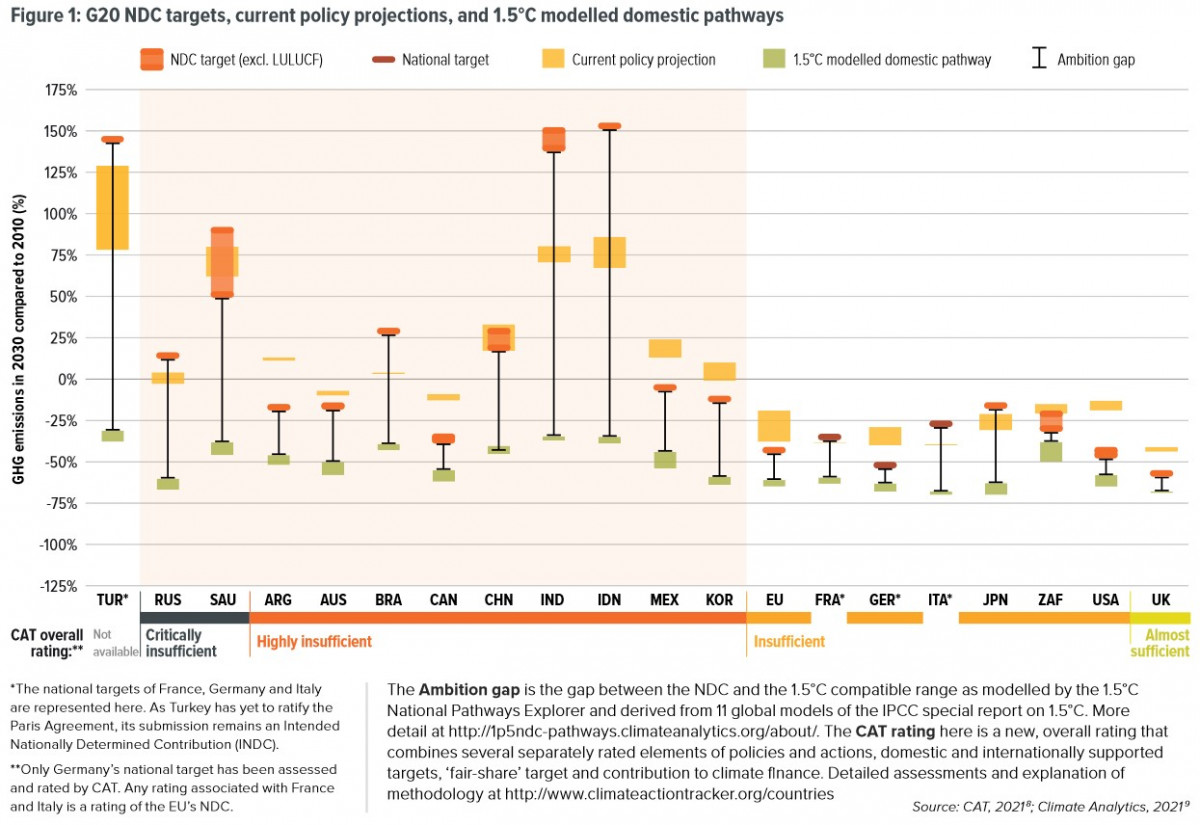No G20 state on 1.5°C path, Germany no exception
The progress made so far by the world’s largest industrialised and emerging countries is far too miniscule to adhere to the Paris Agreement’s 1.5 degree temperature increase limit, according to damning report by Climate Transparency, an international partnership comprising researchers and NGO experts from 14 G20 countries. The report paints a worrying picture of climate protection among the G20 nations ahead of the COP26 UN Climate Change Conference in Glasgow in November. The situation has even worsened with the waning of the coronavirus pandemic: Not only are emissions rising everywhere and in some cases even threatening to exceed 2019 levels, so far only 300 billion of 1.8 trillion US dollars in recovery aid has been invested in sustainable areas.
Germany is far behind in almost every area in a comparison of climate protection measures in various sectors. By contrast, the UK ranks at the top in five out of nine areas. In (not) phasing out internal combustion engines, Germany, along with Australia and Russia, fared worst. When it comes to G20 climate targets, only the UK was found to be “almost sufficient” to help maintain the 1.5 degree limit. Germany and the EU lag behind. Many other G20 countries are taking bigger steps than Germany, says Jan Burck of Germanwatch (part of the Climate Transparency network) and one of the authors of the report. They have set more ambitious goals when it comes to phasing out coal and combustion engines and have been more committed in expanding wind and solar energy. Burck stresses, however, that even the progress of the better G20 countries is not enough to maintain the 1.5 degree limit.
The G20 heads of state and government are set to meet for this year's summit in Rome on 30-31 October. The states are responsible for about 75 percent of global greenhouse gas emissions and many see the meeting as a key event to signal ambition on climate action ahead of COP26 in Glasgow.


